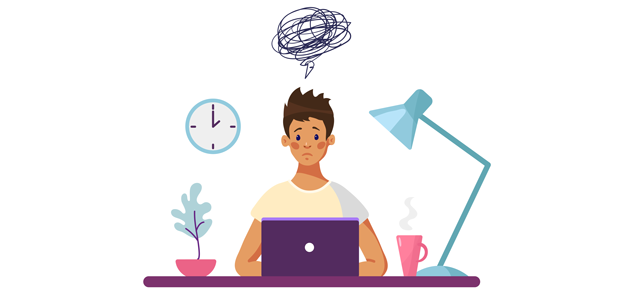
Work is being affected by mental health issues as COVID takes its toll
The latest research shows that employees' mental health is being affected by COVID and that this is having a knock-on effect on their working life. For Mental Health Awareness Week, Towergate Health & Protection urges employers to look after employees at all levels.
Data from the Office For National Statistics shows that the proportion of adults reporting moderate to severe depressive symptoms rose from 10% pre-pandemic, to 19% when lockdown began. The figure continued at 19% through to the latest datasets.
Of those suffering from moderate to severe depressive symptoms, 39% said their work is being affected, 47% said they were spending too much time alone, and 19% were finding working from home difficult.
Brett Hill, Distribution Director at Towergate Health & Protection, said: “The mental health situation in the UK has reached a point where many employees are finding their work is suffering one way or another from the impact of COVID, whether it is because they are at work worrying about home, or at home worrying about work. Employers must act to manage the problem.”
Putting a wellbeing plan in place
Employers are well placed to help with the issues of anxiety and depression during these difficult times. Putting a health and wellbeing plan in place, or even simply communicating the relevant aspects of an existing programme, will help to deal with isolation and anxiety caused by COVID. The research from the Office of National Statistics shows that it is often younger employees who are struggling most with loneliness as a result of lockdown.
However, employers should bear in mind that managers may well be bearing the brunt of increased pressure, and that older employees may have other strains with children and/or elderly parents to look after too. A wellbeing programme that works across all levels and demographics will be important in tackling the issues.
Support systems
There are many different employee benefits available that help employers to support their employees with their mental health. These include mental health apps, hubs, and trackers for mood which help to monitor changes in disposition and can give the user a ‘nudge’ to access more help if needed.
Support can meet specific mental health issues, from mild or moderate to severe. Support can range from specialist helplines, online video counselling sessions, early intervention services from income protection providers, through to in- and out-patient care through private medical provision.
A popular option for helping with the mental health of employees is to implement an Employee Assistance Programme (EAP). These may be standalone or come as an added-value extra within group risk products like life assurance, or as part of Private Medical Insurance (PMI) provision. Showing the extent of the need, figures from one of Towergate Health & Protection’s leading EAP providers reveal that during 2020 there was a 36% increase in calls to their counselling helpline for support with anxiety.
Brett Hill explained: “Much of the anxiety and depression being felt throughout COVID is a compound of concerns about a variety of matters. While depression may be the overriding issue, this can build up due to concerns about a multitude of areas, such as financial wellbeing and physical health, for example. So if employers really want to support their workforce they need to take a holistic approach and offer benefits that look after a whole range of underlying concerns that can lead to mental ill-health.”

